On World Food Day, farmers in the UK and globally are showing how innovative farming methods and techniques can improve lives, help meet global climate targets and produce the food we need without harming the natural environment.
Currently, over 70% of British land is used for agriculture and this is responsible for 12% of territorial greenhouse gas emissions. Food production has also had a devastating impact on Britain’s biodiversity. Farmland birds have more than halved since 1970 while 15% of British wildlife species are now facing extinction.
But regenerative farming practices, such as ditching artificial fertiliser and replanting hedgerows, could boost wildlife and create carbon savings equivalent to taking 900,000 cars off the road.
However, there is confusion amongst farmers and environmental groups over the government’s post-Brexit farming policies, including subsidy schemes and ways to encourage regenerative farming and better countryside management to improve biodiversity.
Harriet Lamb, CEO at climate charity Ashden, said: “The UK government is causing chaos in the countryside at a time when we desperately need to plough a new path where food is grown in a way that’s climate-friendly and protects, rather than destroys, nature.
“The solutions are already out there. Ashden works with organisations across the country, and globally, that are pioneering positive solutions in agroecology, reducing food waste, improving soil and providing training and jobs – all trailblazing initiatives that need support to scale and spread.”
FarmED, is a UK not-for-profit organisation raising awareness of regenerative farming through a series of nature friendly techniques that enrich the soil while removing CO2 from the atmosphere. The finalist in the 2022 Ashden Award Greening All Work category, based in the heart of the Cotswolds, educates members of the local community, farmers, policy makers, students and researchers on the benefits of nature-based farming.
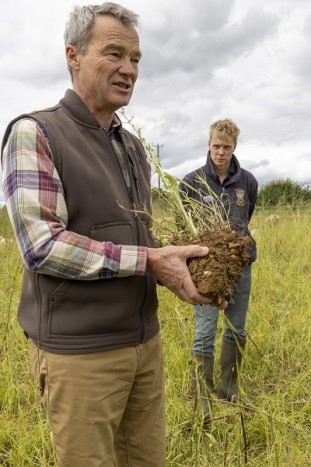
Ian Wilkinson, FarmED founder, added: “What we need is a resilient food system that doesn’t overuse our natural resources, rebuilds soils and ecosystems and is fair and equitable for all.”
Other international Ashden Awards finalists are showcasing ways renewable energy innovative and improved farming practices can increase yields and improve lives and livelihoods.
In the Energising Agriculture awards category, finalist Collectives for Integrated Livelihood Initiatives (CInI) are supporting Indian women to raise their incomes from farming and become leaders in their communities.
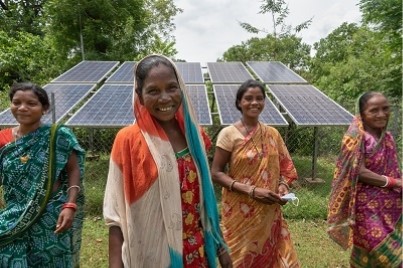
They receive training in new techniques and practices and sell their produce collectively for a larger profit. Membership also brings access to affordable finance for technologies such as solar water pumps and biogas digesters, and the chance to buy seeds together for a lower price. The use of clean energy technology has boosted production of vegetable crops such as tomato, chilli, eggplant and other staple crops.
Hundreds of millions of farmers, in Kenya and around the world, suffer from post-harvest loss due to lack of appropriate ways to manage quality of produce at harvest, poor logistics and unpredictable demand. The only way for farmers to manage quality as they harvest over multiple days is by using cold storage facilities. Without it, selling what they grow beyond their local area is often difficult or impossible.
Yet most existing cold storage is unaffordable and inaccessible to smallholder farmers. As the effects of global warming grow in the years ahead, wider access to cooling will be crucial to help rural communities protect their diets and livelihood.
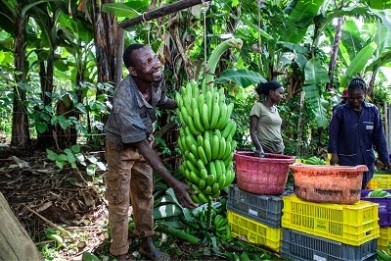
In Kenya, Ashden Award 2022 finalist Sokofresh are bringing mobile, solar-powered cold rooms to the country’s smallholder farmers and helping them get a better, more reliable income from what they grow. The company’s smart tech encourages individual growers to come together and supply large orders to commercial buyers, cutting out middlemen. So even the poorest can sell to Kenya’s biggest food brands and exporters and retain more of the value.

In Peru, Ashden Awards Natural Climate Solutions finalist El Ejecutor del Contrato de Administración de la Reserva Comunal Amarakaeri (ECA-Amarakaeri) is supporting sustainable Brazil nut production which, in turn, promotes cacao production, sustainable tourism, fish farming and poultry breeding. The project gives communities the skills to carry out Brazil nut production and ensures women and young people take part in the harvesting and marketing processes. Women occupy key leadership positions in the project.
The Ashden Awards will be live streamed on Wed 2 November 2022, 7pm BST. Register here.
Tickets are also available for the Ashden Awards ceremony in-person in London.


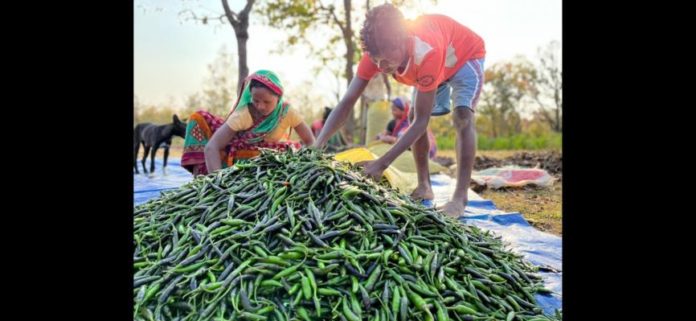




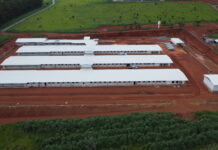

Farmers are already reducing fertilizer cost over 70%, increasing yield and fertility and reducing soil toxicity with the “SNX30 fertilizer supplement”. It’s backed by agronomists, NCGA corn yield winners and other farmers.
Comments are closed.